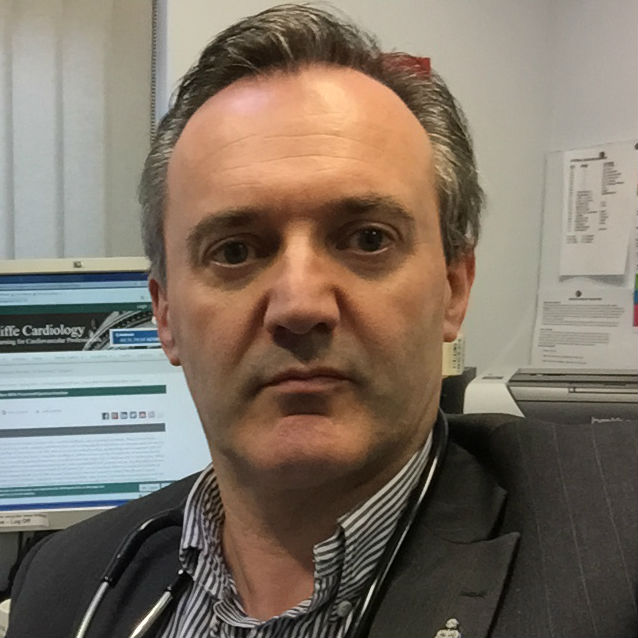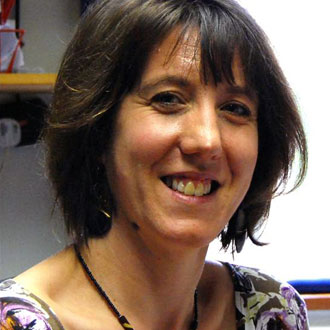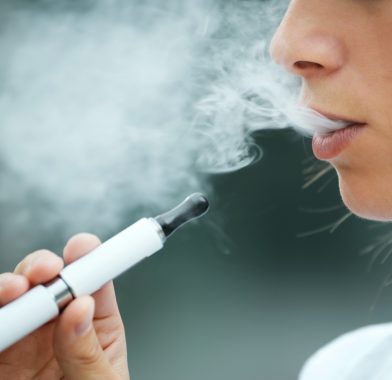
YES
The scale of the potential gains from e-cigarettes means that we should be prepared to put our necks out and take some risks.
Of course scientifically we don’t know how safe e-cigarettes really are. But we do know an enormous amount about how dangerous cigarettes are, and that e-cigarettes are much safer. E-cigarettes have none of the dangers from tar and carbon monoxide but they do deliver nicotine very effectively. Unfortunately nicotine when consumed as a cigarette still kills about 80,000 people a year in the UK. But only as a cigarette.
There is an e-cigarette that has now been licensed as a medicine for smoking cessation, the e-Voke. E-cigarettes as a nicotine delivery method for smoking cessation work very well, and when supported by a smoking cessation service (if you still have one in your area) most smokers can quit tobacco altogether. With the closing of smoking cessation services around the country, prescribing e-cigarettes can be a very effective day of getting our patients to stop smoking.
Public Health England has put its neck out by saying e-cigarettes were 95% safer than cigarettes, and I think we should do the same. So far e-cigarettes have done nothing but help us as GPs, and the NHS. Around 2.6 million adults in the UK used e-cigarettes when ASH did their survey last March. While the numbers using the NHS stop smoking services, and using NRT and varenicline are down, saving the NHS money, the number having quit attempts are up, as e-cigarettes have become the primary aid to quitting. The prevalence of smoking also appears to be falling, having previously been fairly static. E-cigarettes can save the NHS far more money than they will cost from prescriptions.
You may argue that smokers should buy e-cigarettes themselves rather than turning to put-upon GPs, but it can have more of an impact when recommended and provided by a doctor. I have already seen this for myself as our practice funded vouchers for e-cigarettes as part of a smoking cessation programme. Although patients could buy them for themselves, the fact that doctors were supporting their use made a huge difference. Taking a couple of minutes to write a prescription for an e-cigarette seems a small price to pay for saving the life of a patient who can effectively stop smoking.
Dr John Ashcroft is a GP in Derbyshire and opened e-cigarette shop in front of his surgery

NO
The argument is not about whether e-cigarettes are a useful and a safe aid to smoking cessation (I believe they are) nor is it a moral debate as to whether the NHS should fund smoking cessation products that are readily and cheaply available over the counter – the argument is should a GP prescribe these products.
E-cigarettes are 95% safer than conventional tobacco products, so why wouldn’t I prescribe? The problem is GP workload. GPs are already working at maximum capacity, recruitment is difficult and vacancies are high. For primary care to be sustainable in the long term it is crucial that the work being done by GPs is work that requires a GP.
Smoking cessation work is an enhanced and not a core service. It is by definition an optional service. It is a service that can be provided by nurse prescribers, prescribing pharmacists as well as trained smoking cessation advisers working together with prescribers, there is no absolute need for a GP to be involved. Indeed ensuring that smoking cessation is provided outside of primary care (in pharmacies, by the council or in workplaces) simultaneously reduces GP and practice workload and it improves accessibility to an important health improvement service. Improved accessibility is especially important when one considers that the problem of nicotine addiction is over represented in deprived populations.
If GPs start prescribing e-cigarettes, practices could see a significant rise in the number of smokers who want to quit, because of the attractiveness of e-cigarettes especially for those who have previously not found a method of stopping that suits them. Therefore, the number of prescriptions required will also go up. Although each individual smoker who wishes to quit will take maybe ten minutes work, it is ten minutes of work that does not require a GP.
I am overworked. Smoking cessation is not core work. Other people are at least as qualified as I am to provide this service. If we want a sustainable primary care service we need to be honest and open about what is deliverable, we need to start saying NO.
Dr Helen Cotton is a GP in Yeovil
Pulse October survey
Take our July 2025 survey to potentially win £1.000 worth of tokens













